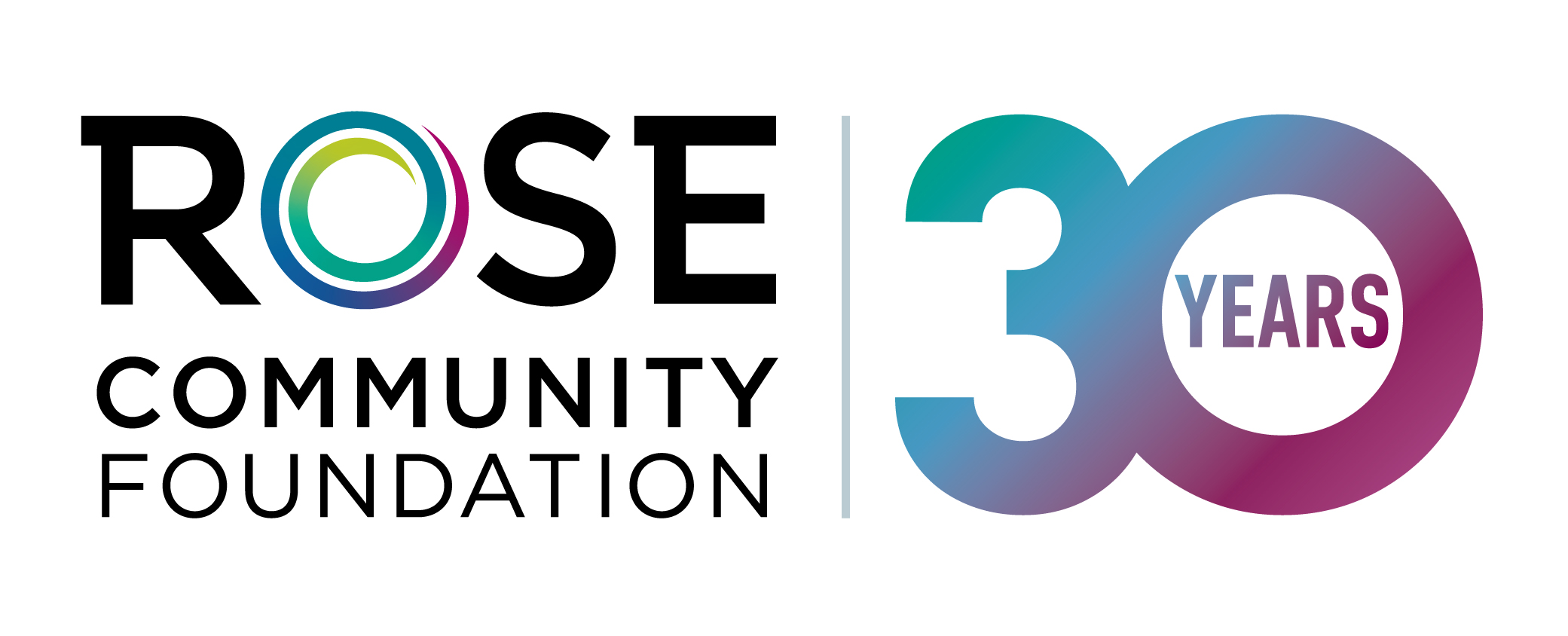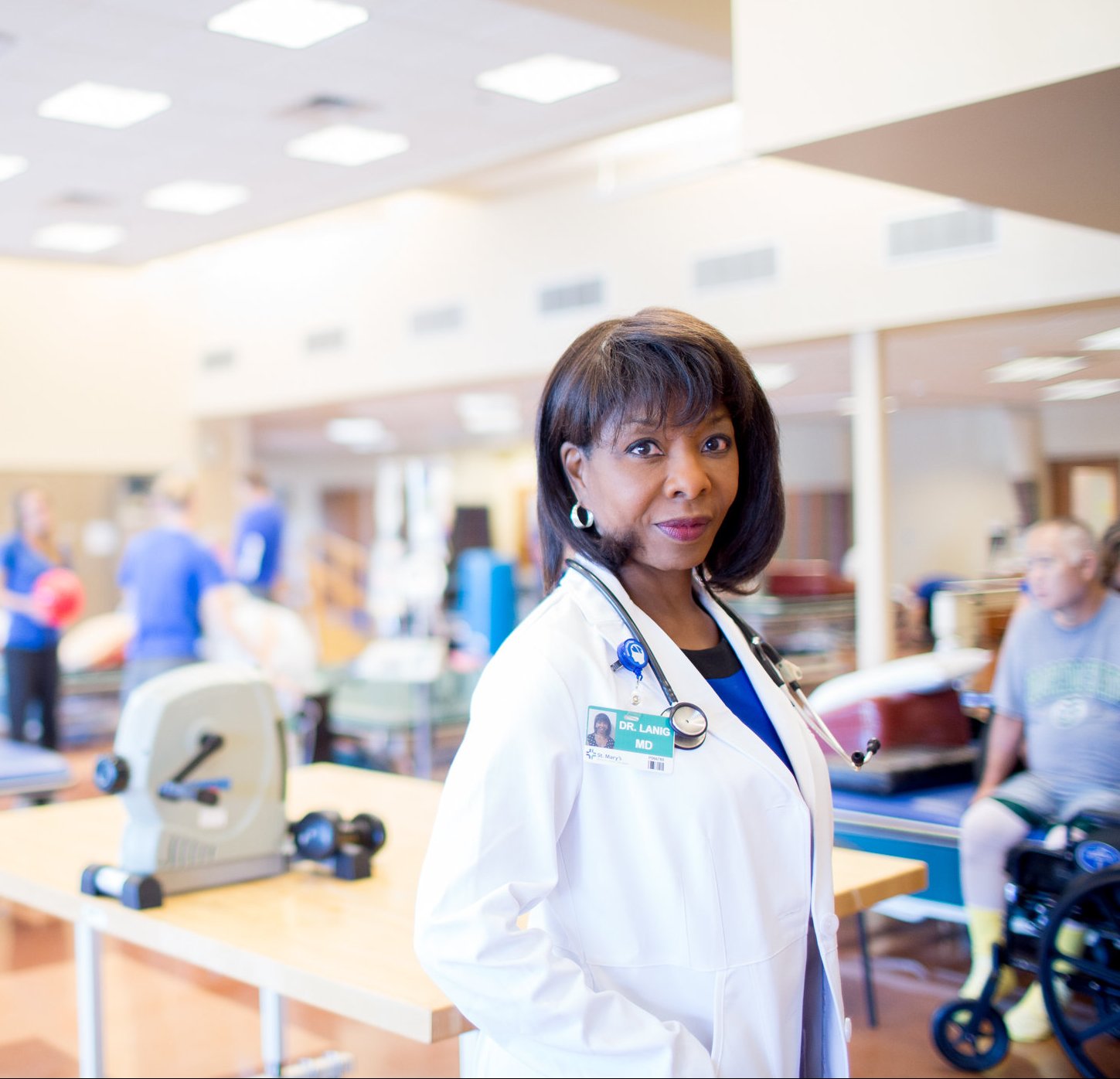Dr. Indira Lanig is a physician subspecialized in spinal cord injury (SCI) medicine and an unrelenting advocate for adults with physical disabilities. Through her donor-advised fund at Rose Community Foundation, Lanig supports programs and projects that improve the quality of life for individuals with acquired spinal cord injuries. She recently supported two more projects aimed at making it easier for health care providers to serve adults with neurotrauma-related physical disabilities.
One in four Americans lives with a disability and people with significant disabilities account for more than 12 percent of the US population. However, Lanig explains, adults with acquired physical disabilities are often unconsciously overlooked by primary care providers.
“When the average physician or person thinks about health disparity groups, they often think about the federally designated groups categorized by ethnicity, sexual orientation or economic status,” says Lanig. “Adults with physical disabilities are rarely included in that top-of-mind understanding. These folks are in the blind spot of health care providers.”
Adults with spinal cord injuries and similar physical disabilities tend to be a low-frequency, but high-stakes, patient population in a general practice. As a result, Lanig explains, most generalists are not familiar with basic best practices for caring for this population. This lack of knowledge creates costly barriers to care.
To help mitigate this complex problem, the Lanig Family Fund recently co-funded a soon-to-launch website landing page that primary care providers (PCPs) can use when caring for community-based patients with spinal cord injuries. Created in partnership with the American Spinal Injury Association and the Academy of Spinal Cord Injury Professionals, the site offers straightforward, easy-to-digest content for physicians to utilize at the point of care.
The Lanig Family Fund also directed a grant to cover publisher fee expenses necessary to provide clinicians and consumers with free access to two 2020 PCP-dedicated issues of Topics in Spinal Cord Injury Rehabilitation. Without the funding, these resources would remain siloed and difficult to access for most non-specialists.
“These tools will help generalists be more inclusive and mindful of unconscious biases,” says Lanig. “There is so much information about how to improve health equity for this patient population, but as specialists, we need to stop talking amongst ourselves and start talking to the rest of the medical field.”
The online resource is an anticipated component of a disability-inclusive specialty clinic project underway at Denver Health, funded by the Craig H Neilsen Foundation: “Primary Care Access and Innovations for SCI Patients.” Denver Health’s project partner, the Center for Improving Value in Health Care (CIVHC), will use their third Lanig Family Fund co-funding grant to analyze aggregate claims data to measure reductions in health-related complications, emergency room visits, service utilization and costs. The report will be entitled, “Using Claims Data to Determine the Efficacy of a Customized Primary Care Pilot for Patients with SCI,” and will reference previous custom data mining analytics supported by Lanig’s donor-advised fund and the Colorado Department of Health Care Policy & Financing.
“Cross-sector collaboration is often the only way to solve for complex community-based needs in a systemic and sustainable way,” she contends. “It is my hope that this collaborative funding and knowledge sharing will bring expanded disability-competent care into view and reach for primary care providers, their organizations and their residency training programs.”
She plans to track the impact of these supportive partnerships with Denver Health, with the intention of using positive outcomes as proof of concept for other clinicians.
“We need to be able to measure the impact of our good intentions,” she explains. “It is my hope that when we look at the data years from now, we will see that Coloradans with mobility impairment disabilities have fewer emergency room visits and rehospitalizations per year. We will then be able to point to the dollars that are saved by Medicaid and Medicare when primary care providers have the strategically placed resources they need to make appropriate care decisions for this diverse population.”
Dr. Lanig also hopes that her efforts will demonstrate to her peers in the medical field that they too can creatively and dynamically utilize varied philanthropic tools and partnerships to improve outcomes for their patients.
“We physicians need not limit our philanthropic support to our alma maters and the nonprofit health care organizations where we practice,” she says. “There are many ways to advance health-equity focused, patient-centered causes.”
“This spirit of partnership is at the core of my relationship with Rose Community Foundation. We bring different insights, perspectives and skillsets to the table in service of addressing unmet health-equity needs in the Greater Denver disability community.”
To learn more, Dr. Lanig suggests reading:
- 30th ADA anniversary: Health is for all of us – Center for Disease Control and Prevention
- We’re 20 Percent of America, and We’re Still Invisible – The New York Times
- COVID-19 Outbreak and Persons with Disabilities – UN Department of Economic and Social Affairs
- Chances of Disability – Council for Disability Awareness
- Disability Awareness Quiz – Council for Disability Awareness
- Health Disparities for People with Disabilities – Disability Rights Education & Defense Fund
The disabled community is heterogeneous. Some people are born with a disabling condition (e.g., Down syndrome) or demonstrate a condition early in life (e.g., autism, bipolar disorder), whereas others acquire disabilities through injury (e.g., spinal cord injury) or a chronic condition (e.g., limb loss because of diabetes), and still others develop a disability in later stages of life (e.g., dementia, age-related mobility disability). The health needs of people with disabilities vary with the type of limitation (e.g., mobility or cognitive) and by the condition underlying the disability (e.g., spina bifida, Down syndrome). Dr. Lanig’s focus is on prime of life adults with acquired disability and mobility limitations.
In this time when we cannot physically reach out to others in our community, we CAN come together through our giving. Interested in supporting Rose Community Foundation’s ongoing, equity-focused response to the medical, economic and social impacts of COVID-19 in seven-county Metro Denver? Consider giving to our R.E.S.P.O.N.D. Fund today!

